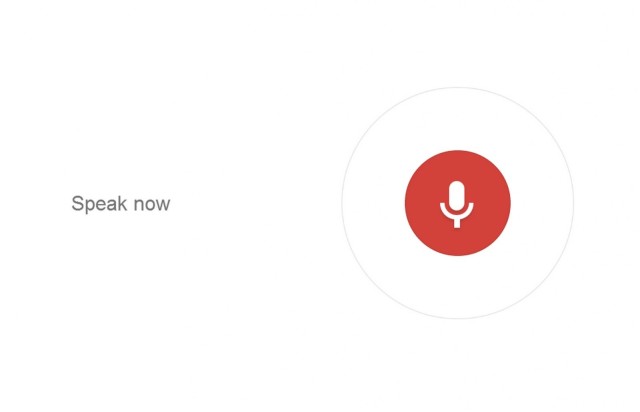Why You’ll Soon Have An Invisible Friend
Just because you talk out loud while you’re alone and hear voices in your head doesn’t mean you’re crazy.
And just because it’s Google Now you’re conversing with doesn’t mean you’re not crazy.
Crazy or not, we’re all going to have an invisible friend in the form of an everywhere, always-listening, always present Google Now.
Google Now is growing in three ways.
First, Google Now is showing up in more places. Now started out on Android devices and shipped recently in a limited release on iOS as a feature of the Google app. It’s coming soon to shipping versions of the Chrome web browser and also to the Chromebook. It’s already the centerpiece of Google Glass and almost certainly Google’s upcoming smartwatch. (A recent job listing suggests that Motorola intends to aggressively pursue wearable computing, and almost certainly a wristwatch. Such a watch would probably highlight Google Now.)
It’s reasonable to assume that Google Now will be a centerpiece of the upcoming Moto X phone, and also be better integrated into Google TV.
Google Now is a no-brainer for in-car dashboard applications, at the least interacting through the phone and at most built into the dashboard itself.
Second, Google Now is growing in its capabilities. Today, it’s great for seeing people’s birthdays, getting sports scores, sending a note to yourself, launching Android apps and more. With each passing month, Google Now will do more, eventually able to buy things for you and be more proactive in looking out for you generally.
And third, Google Now is growing in its visibility or centrality. Google Experience phones, which highlight Google Now from the lock screen, are growing in popularity. The current and upcoming Nexus phones will, and the Moto X phone will probably, emphasize the use of Google Now. (Assuming the latter is true, Google’s possible $500 million advertising budget for the device should raise awareness of Google Now in the public’s eye.
It’s also both logical and apparent that Google intends to make Google Now easier to get at. For example, with Google Glass, it can be summoned with a voice command. I think this is the future for all Google Now installations — it will always be listening.
The command on Nexus is: “Google,” Glass is: “OK, Glass”; and Chrome is “OK, Google.”
The obvious reason for this is that you might have all three devices listening.
Each future device category will have its own new command, no doubt. But I think this is a temporary situation.
Eventually, Google will have to resolve on the fly which device receives the command and carries out the query. When Google Now can do that, a single command would work for all devices, something like: “OK, Google.”
Whether you’re walking down the street, driving your car or sitting around the house, you’ll just talk, say something like: “OK, Google: When will my wife be home?”; “OK, Google: Are there any new movies I might like?” or “OK, Google: Order me a pizza.” Google will figure out the details.
Better still, Google Now will choose a device to interrupt you on. If you’re watching TV, it might show up in a box on the screen. If you’re listening to music in the car or via earbuds, it might turn down the volume and tell you something. If you’re wearing Google Glass, it might pop up a message and tell you stuff like: “Mike, it looks like your wife is caught in traffic and will be delayed by ten minutes”: “Mike, your movie download is complete”; or “Mike, the pizza guy will be here in one minute.”
When Google Now is everywhere and you can interact with it without touching, this will become your main user interface for most of the stuff you normally do with touch screens, keyboards and mice.
It will feel like you have an invisible friend, always present, always listening and occasionally interrupting you to update you about things you want to know or save your ass when something bad can be prevented (such as when you’re running late for a meeting and Google Now knows the traffic is bad).
There’s plenty of evidence, too, that Google Now will eventually be a user interface to home automation. You’ll turn off lights, unlock doors, pre-heat ovens, be notified that your clothes are dry, change the TV channel, cool the room and feed the dog by simply talking.
So when you read about or use Android phones, Google Glass, the Google Now feature in Chrome, or any future implementations of Google Now, don’t focus on the small picture. Look at where all this is going. Google is building an ever-present invisible friend who will look out for you, keep you informed and answer all your questions with a short and simple conversation.
After all, what are invisible friends for?



